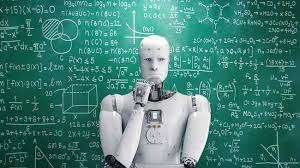
Breaking News
 Iran Regime Kills Protesters as Unrest and Calls for Regime Change Spread Nationwide
Iran Regime Kills Protesters as Unrest and Calls for Regime Change Spread Nationwide
 Trump, Treason, and the New York Times
Trump, Treason, and the New York Times
 Democrat idiocy at work in San Francisco
Democrat idiocy at work in San Francisco
 BREAKING THROUGH Tesla AI in 2026
BREAKING THROUGH Tesla AI in 2026
Top Tech News
 Laser weapons go mobile on US Army small vehicles
Laser weapons go mobile on US Army small vehicles
 EngineAI T800: Born to Disrupt! #EngineAI #robotics #newtechnology #newproduct
EngineAI T800: Born to Disrupt! #EngineAI #robotics #newtechnology #newproduct
 This Silicon Anode Breakthrough Could Mark A Turning Point For EV Batteries [Update]
This Silicon Anode Breakthrough Could Mark A Turning Point For EV Batteries [Update]
 Travel gadget promises to dry and iron your clothes – totally hands-free
Travel gadget promises to dry and iron your clothes – totally hands-free
 Perfect Aircrete, Kitchen Ingredients.
Perfect Aircrete, Kitchen Ingredients.
 Futuristic pixel-raising display lets you feel what's onscreen
Futuristic pixel-raising display lets you feel what's onscreen
 Cutting-Edge Facility Generates Pure Water and Hydrogen Fuel from Seawater for Mere Pennies
Cutting-Edge Facility Generates Pure Water and Hydrogen Fuel from Seawater for Mere Pennies
 This tiny dev board is packed with features for ambitious makers
This tiny dev board is packed with features for ambitious makers
 Scientists Discover Gel to Regrow Tooth Enamel
Scientists Discover Gel to Regrow Tooth Enamel
 Vitamin C and Dandelion Root Killing Cancer Cells -- as Former CDC Director Calls for COVID-19...
Vitamin C and Dandelion Root Killing Cancer Cells -- as Former CDC Director Calls for COVID-19...
AI Trained on Old Scientific Papers Makes Discoveries Humans Missed

Using just the language in millions of old scientific papers, a machine learning algorithm was able to make completely new scientific discoveries.
In a study published in Nature on July 3, researchers from the Lawrence Berkeley National Laboratory used an algorithm called Word2Vec sift through scientific papers for connections humans had missed. Their algorithm then spit out predictions for possible thermoelectric materials, which convert heat to energy and are used in many heating and cooling applications.
The algorithm didn't know the definition of thermoelectric, though. It received no training in materials science. Using only word associations, the algorithm was able to provide candidates for future thermoelectric materials, some of which may be better than those we currently use.



